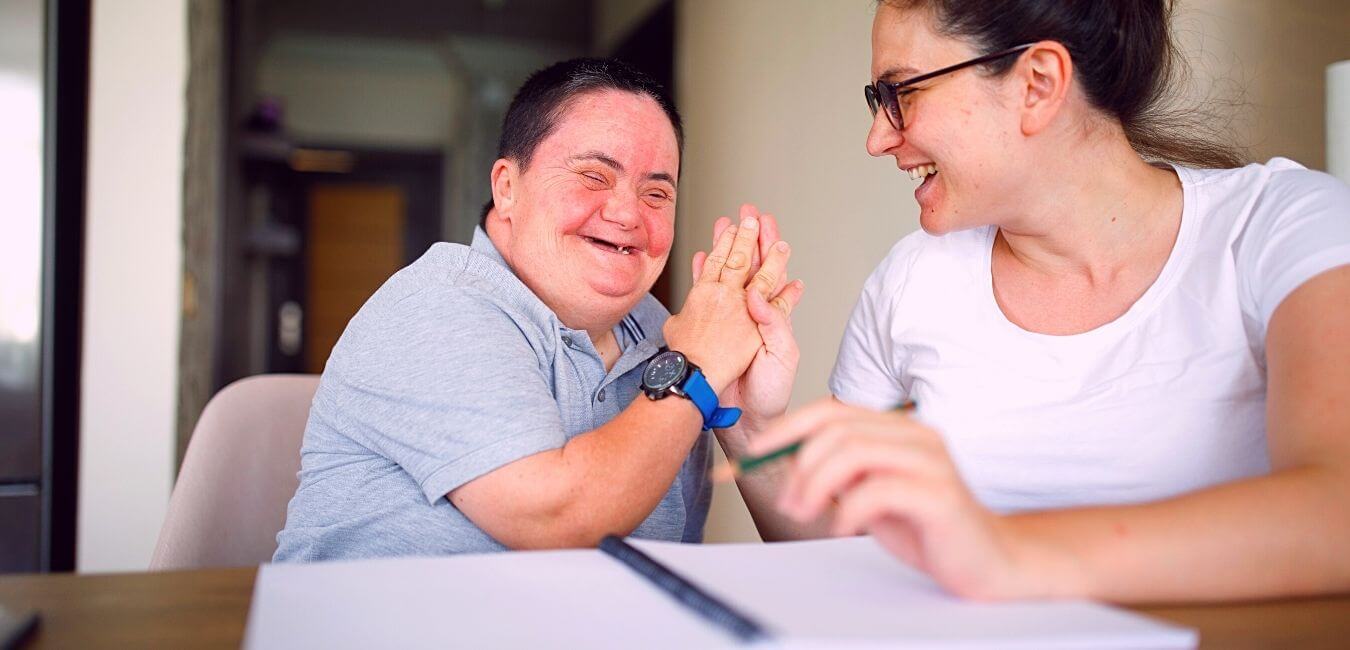If you are unaware of the National Disability Insurance Scheme (NDIS) funding, you might still be beginning your disability support journey – working through the diagnosis, treatments, and other relevant assessments. Many disabled victims are also opting for privately funding therapies, state funding, and other means to support themselves. Irrespective of your current sources, it’s essential for you to find the best support for your circumstances. However, understanding the NDIS and applying for support can be overwhelming. This NDIS guide can help you navigate the NDIS process and find relevant information that can help support you in this journey.
What is the National Disability Insurance Scheme (NDIS)?
The National Disability Insurance Scheme (NDIS) allocates over $26 billion yearly for funding. The National Disability Insurance Agency (NDIA) runs the NDIS and has helped over 500,000 Australians with permanent disabilities. The NDIS was launched in 2016, with the final stage rolled out in 2020, to help permanently disabled Australians and provide them with the necessary support they need in their everyday life. After a three-year trial period that proved to be successful, the NDIA initially intended to centralise disability support through the NDIS. The scheme was launched in different states across Australia in 2016, with the final stage in July 2020.
The NDIA is an independent Commonwealth Government agency and the central body for NDIS. They provide information and referrals and help out participants with services. The NDIS aims to support permanently disabled Australians – helping them get more involved in the community, achieve greater independence, find local jobs, and focus on their wellbeing.
The NDIS plans provide day-to-day living support for various activities, so you can be equally involved in the community. Some participants are also entitled to other resources, including wheelchairs, home modifications, assistive technology, etc. Other facilities in the NDIS plans also include educational opportunities to help disabled individuals find employment and become financially independent.
The NDIS has also developed a program for children under the age of 7 with developmental delay or disabilities – called the Early Childhood Approach.

General eligibility criteria for the NDIS
The NDIS supports Australians with physical, mental, and intellectual disabilities. Here are the eligibility criteria for the NDIS –
- The applicant must be under the age of 65
- The applicant must be an Australian citizen, permanent resident, or hold a Protected SCV (Special Category Visa).
- The NDIS recognises disabilities that affect the individual’s ability to perform everyday tasks – requiring “reasonable and necessary support.” The NDIS also recognises developmental delay for children under the age of 6, when their condition can be improved with early intervention.

According to the NDIS eligibility requirements, individuals over the age of 65 can not apply for NDIS support. The NDIA claims that the NDIS is part of a broader support system of the Government, and hence individuals over the age of 65 must opt for the aged care system.
However, if you are under the age of 65 and are receiving NDIS support, you can continue to access them even after you turn 65 and beyond. After the age of 65, you can either continue under the NDIS or shift to the Commonwealth Aged Care System.
You must live in Australia and follow the citizenship or visa requirements to apply for the NDIS. If the applicant fails to meet these requirements at any time, the NDIA can cancel their access to the NDIS.
Everyday activities can include social interaction, mobility, communication, self-care etc. If your disability is permanent and affects your ability to perform crucial everyday activities, it is recognised under the NDIS.

How can I apply for the NDIS?
Before applying for the NDIS, you must first determine your eligibility. The initial criteria are that the individual lives in an area that the NDIS covers, is under the age of 65, and has developed a permanent disability. Once your eligibility status is confirmed, you can contact the NDIA at 1800 800 110 for an access request form or download the available form from the website.
After completing the access request form, attach relevant documents (medical records, etc.) that may help the NDIA process your application. However, in the case of individuals with serious medical conditions such as cerebral palsy or blindness, the NDIA doesn’t require any supporting information.
Once you complete the Access Request Form, you can email it to NAT@ndis.gov.au or contact your National Disability Insurance (NDIA) office or your Local Area Coordinator.
The form will require the applicants to confirm their identity and answer questions to analyse whether the applicants meet the NDIS eligibility requirements. In some cases, the NDIS may also require additional information regarding the applicant’s disability. If your application is successful, the NDIA or Local Area Coordinator will contact you for a planning meeting. However, the process may take some time before completion. While you’re waiting for a response from the NDIA, you can access other privately-funded support services or ask your General Practitioner (GP) for other specific services. If you still need to contact the NDIA regarding the status of your application, you can call them at 1800 800 110.
I have been approved for NDIS funding – What’s the next step?
After the NDIA has reviewed and accepted your access request form, you can access their services. A Local Area Coordination, NDIS Planner, or ECEI Coordinator (in the case of the Early Childhood Approach) will contact you to discuss your plan – which may take a few weeks for approval.
The planning meeting can be done in their office, over the phone, or at your home with a representative. The meeting will cover your circumstances, current support, and other relevant information to ensure the NDIS can provide the support you need to live independently. Your input will be necessary to set up goals for your NDIS plan.
After a successful planning meeting, your Local Area Coordinator will send your plan to the NDIA for approval. After the NDIA approves your plan, you will also receive a copy. However, the approval may take a few weeks. Once your plan is approved, you can move on towards accessing the support services through providers to achieve your individual goals.
If you are not satisfied with the support included in your plan, you can formally request a plan review. You can do this by downloading and completing the review form on this NDIS website. However, you must request a review within three months of receiving the NDIA’s decision. The request must also explain why you disagree with the support services outlined in your plan.
National Disability Insurance Scheme (NDIS) Funding
The NDIS funding breaks down into three different support plans that involve different support services. Moreover, the NDIS provides control over the category of support services and the providers for their applicants. The funding is designed to help applicants achieve the maximum independence possible and reach their personal goals. Hence, the process ensures that applicants access the funding category that can align with their personal goals.
The NDIS will fund support services that are necessary for the applicant. And to decide on the necessary support services, the NDIA will consider the applicant’s circumstances. It will include access to any and all other informal support services (through family members and friends) and formal support services (privately funded services, health or education services). The planning meeting allows the NDIA to collect this information from the client over a detailed discussion and suggest the best support service suited to their needs and goals to create the final plan.
To decide the necessity of the support services, the NDIA refer to their operational guidelines where the support services must –
- be related to the applicant’s disability
- not include any additional expenses that aren’t related to the applicant’s disability
- be effective and beneficial for the applicant’s needs and goals
- consider all other informal supports received (by family, friends, carers, and community)
However, NDIS can refuse or cancel funding if it –
- is not relevant to the applicant’s disability
- Is harmful to the applicant or others
- Includes support services that are delivered to the applicant under a different funding
- can be delivered under other – more appropriate – programs such as education or health
NDIS Funding Packages
The NDIS funding packages are divided into three distinct categories that cover different areas of support.
The Core package assists with everyday tasks. It includes transport, community and social participation, etc. The Capital package includes equipment that could help with the applicant’s disability. It includes assistive technology and home modifications that can accommodate the needs of disabled individuals. Finally, the Capacity Building package includes therapies and skills that help improve the applicant’s independence. It will include improved living arrangements, support coordination, improved daily skills, education and training, skills to seek relevant jobs, etc. This support package exclusively focuses on skills that allow the applicant to resume daily activities and move towards an independent life.
The budget for your funding includes financial and other support services relevant to your goals and plan. You can either be funded for one support package, two, or even three. It entirely depends on your personal goals.
A ten-year-old autistic child will likely end up in the Capacity Building plan that helps fund different therapies to develop new skills. However, an adult with a permanent physical disability is more likely to end up in the Core Support plan to receive funding that helps with everyday tasks.
However, there is room for flexibility in the NDIS packages. To ensure complete control and power of “choice”, you are allowed to spend the money according to your needs. But, the NDIA doesn’t allow any funds transfer from one support package to another. If you receive funding for the Capacity Building and Core plan, you can’t use the funds designated for speech therapies to receive in-home care supports, and vice versa.

How does it work?
The entire budgeting process and records for support services will be outlined in your final plan – Plan Management. NDIS price guides cover funding amounts and are usually updated yearly – generally on 1 July. The cost of support services may vary depending on the time of the week or day and your residential area.
The National Disability Insurance Scheme (NDIS) funds permanently disabled Australians to help them seek the necessary support services they need to improve economic and social participation and lead an independent life. It includes individual applicant budgets where the participants choose the services and support they need. The National Disability Agency (NDIA) pays for these support services, with the prices set in the NDIS price guide.
The yearly updates in the NDIS price guide are dependent on market trends, wage rates, and changes in costs. All changes are updated on their website. It is crucial to understand the costs of your support services to ensure you are getting the value for your money. A detailed NDIS price guide catalogue is available here.
The NDIS price guide includes all expenses for all support services that NDIA offers. Unless stated otherwise, no NDIS registered providers can charge more than the NDIS prices for the assigned support services. A principle of the NDIS is that the funding must represent value for money. Hence, as the number of participants and providers grows yearly, there could be a rise or decline in competitive prices. However, the NDIA ensures that all prices are still reasonable at the end of the day.
The NDIS price guide helps the applicant navigate the prices. It breaks down relevant information for each support service – a reference number, description, price, whether you need a quote or not, and how the provider charges for the service (hourly, daily, or weekly).
We’re here to help
At United Legal, we are passionate about your legal rights. Our experienced lawyers are always a call or message away. If you need any more information regarding NDIS support, funding, or the application process, we encourage you to make the call and contact us. However, if your disability is a workplace or assault, you may also be able to file a compensation claim. With the best compensation lawyers, United Legal fights for your legal rights, represents you in court, and demands the compensation you deserve.
For our legal support services, contact us at (02) 6295 228
United Legal
Canberra Public Liability Lawyers
Visit us at
54-56 Townsville St, Fyshwick ACT 2609






